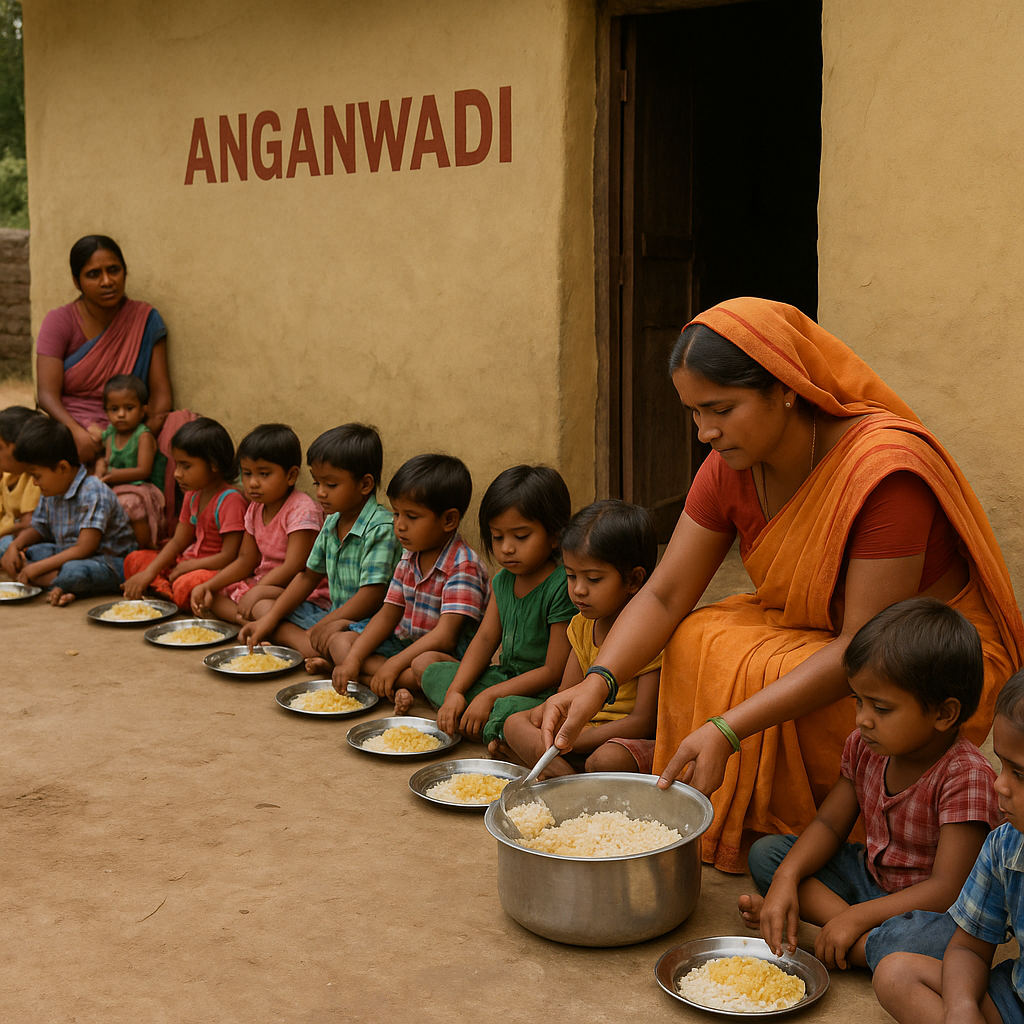
To ensure that children and mothers in rural India get the benefits they deserve, the Government of India has introduced facial recognition technology in Anganwadi centres. This decision aims to bring more transparency and accountability in welfare programs like the Mid-Day Meal Scheme and the Poshan Abhiyaan.
On May 30, the Ministry of Women and Child Development issued a directive that made face authentication mandatory in all Anganwadi centres. It will now be used for attendance, e-KYC, and verifying the delivery of services. The move is part of a larger plan to improve the functioning of schemes that support child nutrition and maternal care.
India has over 13.9 lakh Anganwadi centres across the country. These centres serve nearly 8 crore beneficiaries, including 2 crore children between 0 to 6 years and around 1.9 crore pregnant and lactating women. Anganwadis are not just centres for meals. They provide basic healthcare, vaccinations, preschool education, and support to mothers and children in rural areas.
Facial recognition will now be used through the Poshan Tracker app. Beneficiaries are expected to upload their photos and update their Aadhaar-linked mobile numbers. The technology will help eliminate fake beneficiaries and ensure that services are given only to genuine people. It will also improve real-time attendance and reduce human error.
According to the government, better tracking will reduce leakages in schemes like the Integrated Child Development Services (ICDS) and Poshan Abhiyaan. Together, these schemes have an annual budget of over ₹20,000 crore. If even a small percentage of this budget is misused, it results in a huge loss. By using technology, the government hopes that more funds will reach the actual beneficiaries.
But this move has also raised some concerns. Anganwadi workers, who already handle many responsibilities, now worry about the added technical burden. Many say the app often crashes, especially in areas with poor internet. There are also concerns about privacy, as thousands of children’s photographs are being uploaded without clear rules on how the data will be used.
Shivani Kaul, President of the Delhi State Anganwadi Workers and Helpers’ Union, said that workers are under pressure to complete tasks without proper support. “We need training, working internet, and better devices,” she said. “Without these, such changes create more stress than help.”
Experts also point out the importance of having strong data protection laws. While Aadhaar is already linked with many services, using facial data adds another layer of risk. If this sensitive data is not stored securely, it may lead to privacy violations.
Still, if implemented properly, this step can bring a big change. With over 31 percent of children under five years being underweight in India (NFHS-5, 2021), better monitoring of nutrition schemes is necessary. Real-time data can help the government respond faster and fix problems on time.
The Anganwadi system is a lifeline for many rural families. It is often the first place a mother goes to during pregnancy or a child visits for their first cooked meal. By combining technology with human care, India is trying to build a stronger base for its future generations.
In the end, facial recognition is just a tool. Its success will depend on how responsibly it is used and how well it serves those who need it the most.





















